Latin America
LGBTQ lawmakers in Latin America pledge to end conversion therapy in region
Agreement signed at Global Equality Caucus meeting in Argentina
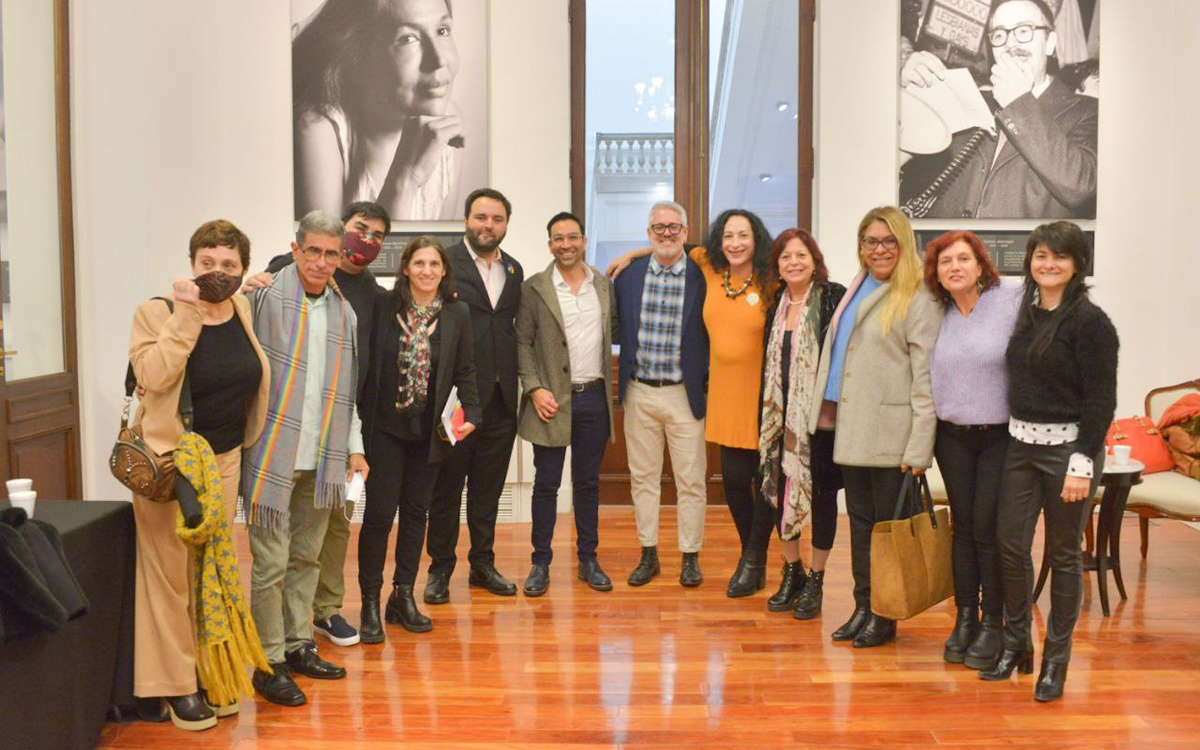
BUENOS AIRES, Argentina — Openly LGBTQ lawmakers from across Latin America who gathered in Argentina’s capital last week agreed to work together to ban so-called conversion therapy in the region.
The second meeting of the Global Equality Caucus’ Latin America chapter took place in Buenos Aires. Those who attended agreed the effort to ban conversion therapy in the region would begin in countries where openly LGBTQ people have been elected to public office and where allies can be identified.
“Efforts to correct sexual orientation and gender identity (ECOSIG), also misnamed ‘conversion therapies,’ lack scientific support and are based on prejudices contrary to the human dignity of all people,” reads the document signed at the end of the meeting. “The practice of ECOSIG has been widely spread and institutionalized in our region, outside the law, which represents a threat to all LGBTI+ people and, especially, to the youngest members of the LGBTI+ community.”
Erick Iván Ortiz, who oversees the Global Equality Caucus’ work in Latin America, told the Washington Blade that “this is a pact that we also signed in Mexico and implies the commitment of legislators to advance laws and public policies that allow us to eradicate once and for all, these misnamed conversion therapies”.
According to the Global Equality Caucus representative, the meeting served “to demonstrate that congresses, national governments and local governments can and should work together to advance the rights of LGBTI people and how Argentina and Mexico are good examples and good practices.” Ortiz also stressed that from now on they will be able to face any threat from anti-LGBTQ groups in Latin America, “who seek to roll back, paralyze progress or simply deny our rights.
“What we need is a coordinated response from those of us who are and will remain in the struggle to advance the rights of LGBTI people,” said Ortiz.
The first part of the launch of the Global Equality Caucus’ Latin America chapter took place in Mexico City on April 1-2. The second meeting took place in Argentina from May 16-17.
Mercosur Parliamentarian María Luisa Storani, Argentine National Assemblyman Maximiliano Ferraro, Argentine National Sen. Guadalupe Tagliaferri, Peruvian Congresswoman Susel Paredes and Guatemalan Congressman Aldo Dávila, among others, attended the Buenos Aires meeting.
“The meeting met the expectations we had of having the opportunity to show the good practices and legislative and public policy experiences that Argentina has,” Ortiz stressed. “This is particularly important because they are experiences that come from the global south that are already, in the case of the gender identity law, a decade old and that have left significant changes in the realities of many LGBTI people.”
The Global Equality Caucus pointed out launch’s objectives are to share experiences and create a peer-to-peer learning process. The group at the same time also wants to form and strengthen networks among LGBTQ lawmakers and allies throughout Latin America and to build a working agenda on LGBTQ rights issues in the region.
Dávila, who is the first openly gay man and first person with HIV elected to the Guatemalan Congress, spoke with the Blade at the end of the meeting.
“It was fantastic,” he said. “We were able to identify the gaps that have been there forever and the need to get more members of the community into elected office, it’s key. We need to work more together to push for changes in favor of LGBTQ people.”
For him, the most important agreement “is the creation of law initiatives together.”
“In that sense, we agreed to launch law initiatives that are closely related,” said Dávila. “For example, we will fight to ban the misnamed conversion therapies and we will do it jointly in June. That will be an important step if we do it all together in the region, I think we will send a great message of union.”
Mexico City Assemblyman Temístocles Villanueva, who participated in the first Global Equality Caucus meeting in his country, had a similar opinion.
Villanueva explained to the Blade that “it was an event for the construction of the public, political and legislative agenda in the field of human rights of people of sexual diversity, having given priority to the search for bridges for cooperation, joining national and international actors.”
“We have focused on the need to share and transmit the Latin American experience for the struggle, recognition and defense of LGBTTTI+ rights through international platforms such as the caucus, connecting local work with regional and transnational cooperation networks for the defense of central causes,” added Villanueva.
Ortiz said “the next step is the construction of a consensus agenda, based on the inputs gathered in Mexico and Argentina, which will allow us to build a shared agenda that we can promote in a coordinated and articulated manner with the different members of the network.”
Caribbean
Gilead Sciences awards grants to HIV/AIDS groups in Latin America, Caribbean
Stigma, criminalization laws among barriers to fighting pandemic in region
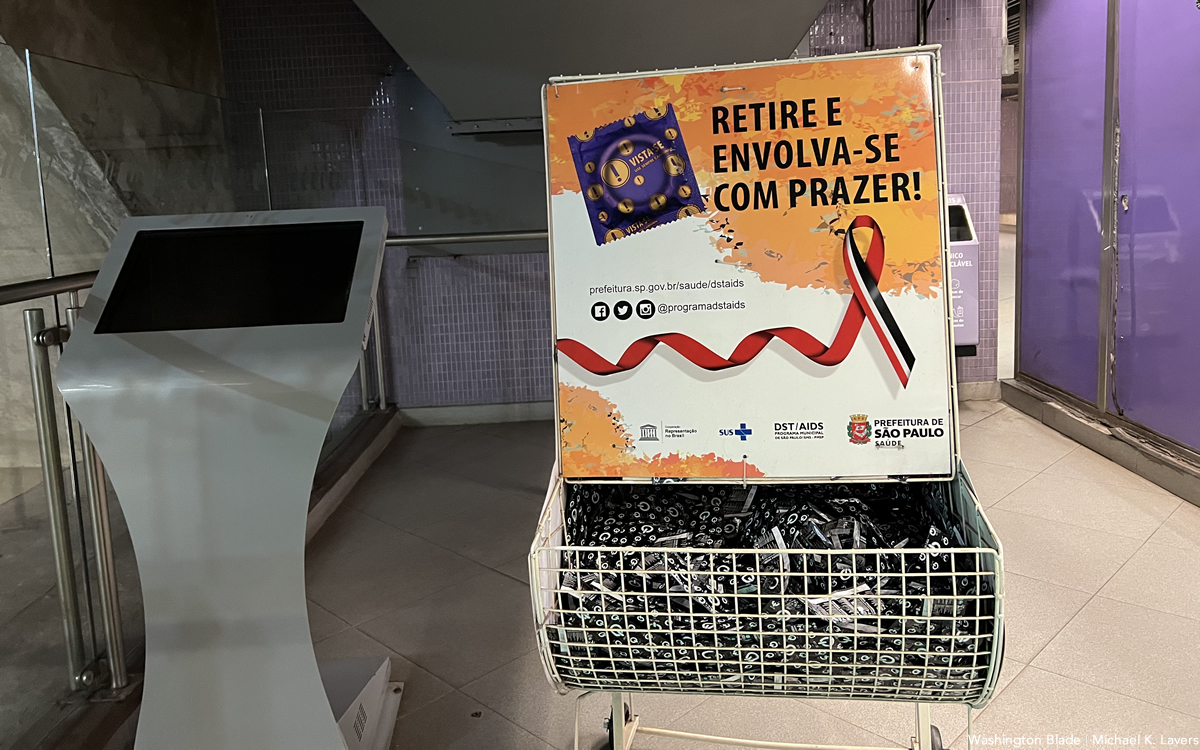
Gilead Sciences this week announced it has given $4 million in grants to 35 organizations in Latin America and the Caribbean that fight HIV/AIDS.
A press release notes Asociación Panamericana de Mercadeo Social (Pan-American Association of Social Marketing) in Nicaragua, Fundación Genesis (Genesis Foundation) in Panama, Fundación por una Sociedad Empoderada (Foundation for an Empowered Society) in Argentina, Associação Nacional de Travestis e Transexuais (National Association of Travestis and Transsexuals) in Brazil and Caribbean Vulnerable Communities are among the groups that received grants. Gilead notes this funding through its Zeroing In: Ending the HIV Epidemic in Latin America and the Caribbean will “improve access to care, increase health equity and reduce HIV-related stigma for populations most affected by HIV.”
“The HIV prevention and care needs of people throughout Latin America and the Caribbean are incredibly diverse, and each of these programs addresses a unique community challenge,” said Gilead Vice President of Corporate Giving Carmen Villar. “Our grantees are deeply embedded in their communities and best positioned to provide needed HIV care and support services.”
“Their expertise will be essential to achieve the Zeroing In program’s goals of improving access to comprehensive care among priority populations, decreasing HIV-related stigma and reducing HIV and broader health inequities,” she added.
The pandemic disproportionately affects transgender people and sex workers, among other groups, in the region. Activists and HIV/AIDS service providers in the region with whom the Washington Blade has previously spoken say discrimination, stigma, poverty, a lack of access to health care and criminalization laws are among the myriad challenges they face.
First Lady Jill Biden in 2022 during a trip to Panama announced the U.S. will provide an additional $80.9 million in the fight against HIV/AIDS in Latin America through the President’s Emergency Plan for AIDS Relief.
Cuba in 2015 became the first country in the world to eliminate mother-to-child transmission of HIV. The Cuban government until 1993 forcibly quarantined people with HIV/AIDS in state-run sanitaria.
Antigua and Barbuda, St. Kitts and Nevis, Barbados and Trinidad and Tobago in recent years have decriminalized consensual same-sex sexual relations.
The Inter-American Commission on Human Rights in 2021 ruled Jamaica must repeal its colonial-era sodomy law. The country’s Supreme Court last year ruled against a gay man who challenged it.
Latin America
Violence against LGBTQ Ecuadorians increases amid ‘internal armed conflict’
Government has declared war against drug cartels
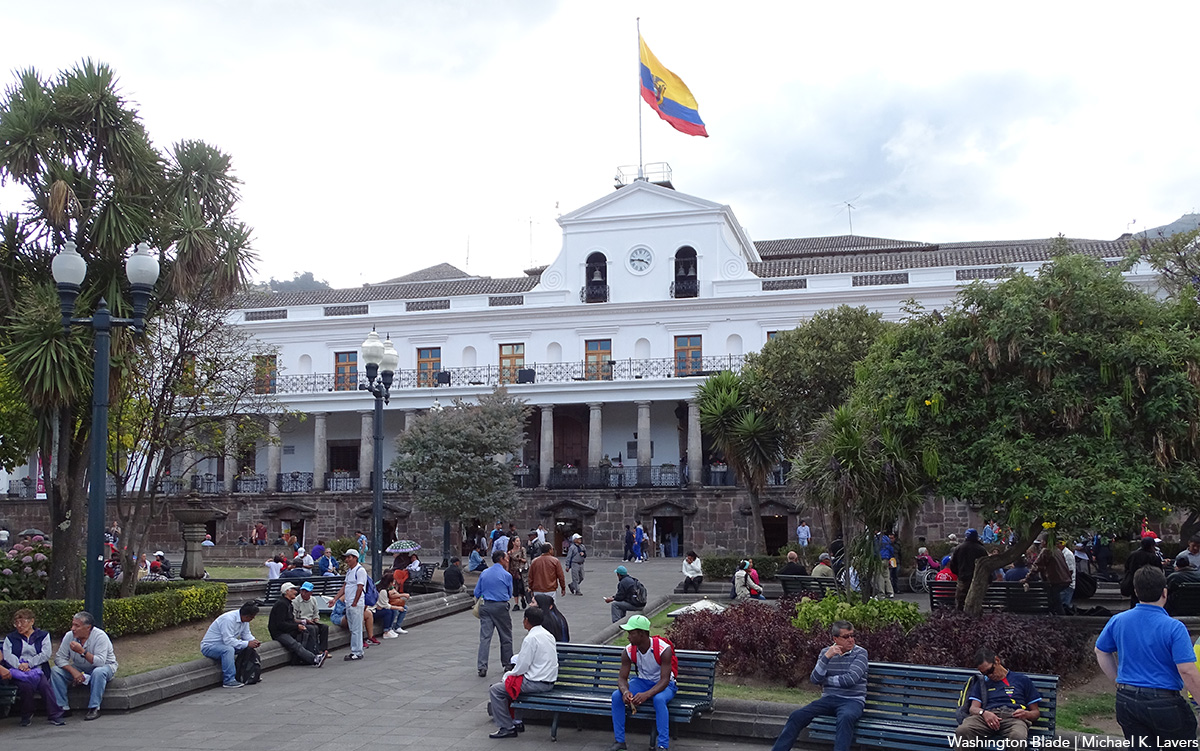
The current crisis in Ecuador has exacerbated the vulnerability of the LGBTQ community, which was already facing high levels of violence and discrimination.
A report that Runa Sipiy published notes 27 LGBTQ people were reported murdered in the country in 2023, and government authorities did not adequately respond to them. This situation has intensified during the armed conflict in the country.
Two LGBTQ people have already been reported killed in 2024. Diane Rodríguez, national director of the Ecuadorian Federation of LGBTI Organizations, described the Ecuadorian government’s measures in response of ensuring LGBTQ people remain safe as insufficient and inattentive.
Ecuador in 2019 extended marriage rights to same-sex couples. They can also adopt children, while transgender people can change their legal documentation. The country’s constitution includes sexual orientation and gender identity within the protected categories against discrimination.
Challenges nevertheless persist: Awareness and full implementation of laws and the continued need for efforts to ensure Ecuadorian society is more respectful of sexual and gender diversity.
Rodríguez told the Washington Blade “the current security crisis in Ecuador has had a direct impact on the LGBTQ community.”
“LGBTQ people were already more prone to violence and discrimination before the crisis, and this situation has worsened even more in recent months,” she said.
The activist added that “we believed that, with the new government of Daniel Noboa, things would improve, but we are finding that they will not, since his own human rights institutions, such as the Ministry of Women and Human Rights, omit our situation or hold cosmetic LGBT+ meetings, in the manner of pinkwashing of the current government.”
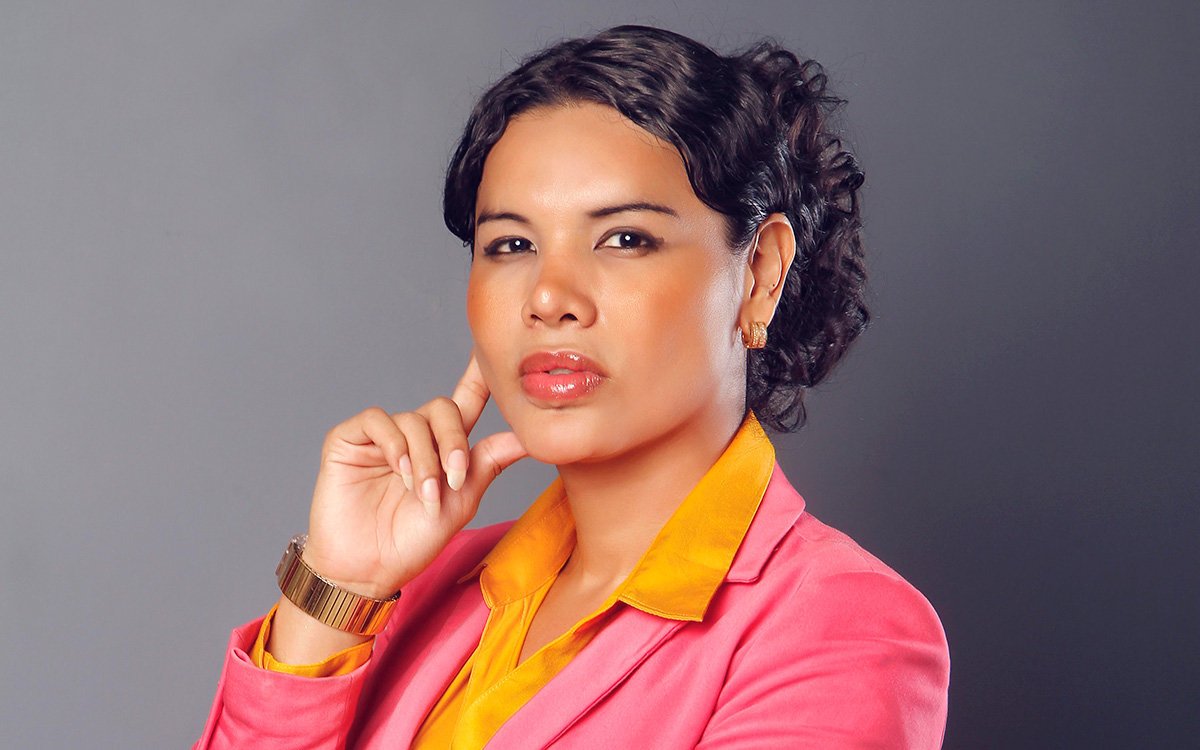
According to Asociación Silueta X, an organization that works for the rights of LGBTQ people in Ecuador, an increase in incidents of violence and discrimination towards LGBTQ people has been observed during this period of crisis. These incidents include physical attacks, verbal harassment and discrimination in accessing public services.
“This week, for example, Beba was murdered on the afternoon of Jan. 8, 2024, shot in her native Pueblo Viejo, Los Rios province in Ecuador, in the context of the ‘internal armed conflict’ of the country and the state of emergency declared by the president of the republic,” said Rodríguez. “So far, no government department has spoken out about these trans murders, much less the Undersecretary of Diversities or the Ministry of Women and Human Rights.”
Rodríguez in 2017 became the first openly trans person elected to the country’s National Assembly when she became an alternate assemblywoman. She has also been president of Asociación Silueta X.
Rodríguez said the violence has disproportionately affected trans, lesbian and bisexual women.
“We trans people are especially vulnerable to sexual violence and human trafficking,” she said. “This is not only because of those who promote the internal armed conflict related to narco-crime, but also because of the police and army personnel themselves, who in critical events such as the COVID-19 pandemic, abused their power and violated the rights of trans people, especially trans women, so we are fearful on both sides.”
“In Ecuador LGBT+ people and especially trans women are afraid of those who should protect us, such as the police and the army,” added Rodríguez.
Christian Paula, executive director of Fundación Pakta, noted to the Blade informed that “a case arose over the weekend, where a couple was violating the curfew, apparently a couple of gay guys on a motorcycle after 11 p.m. and the police asked why they were both on a motorcycle so late at night”.
“They had indicated that they are a couple and what (was outrageous) is that they stripped them naked and sent them without clothes to return to the house,” noted Paula.
Latin America
LGBTQ bars in Latin America: A reporter’s notebook
These spaces are not available to everyone
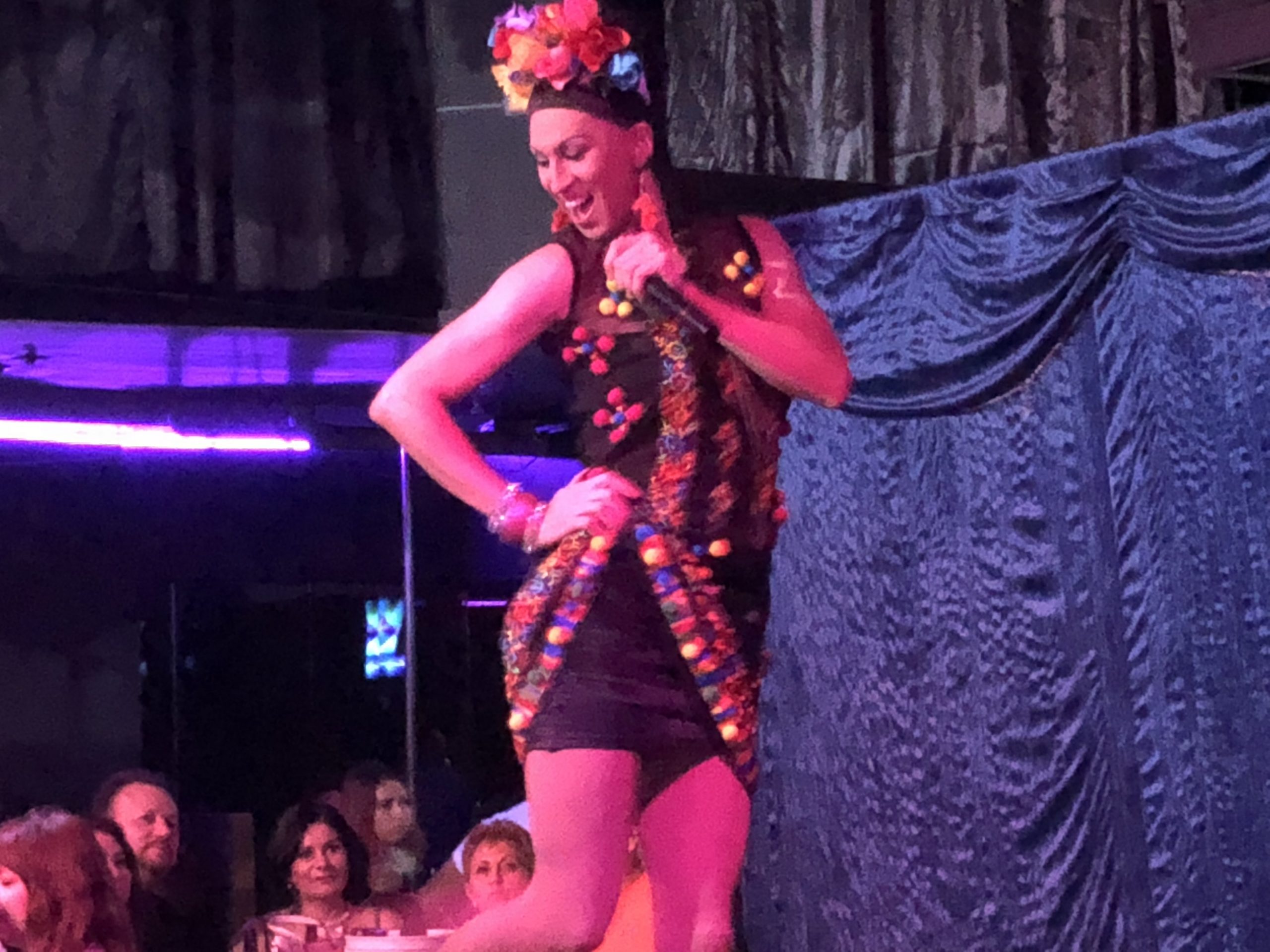
La Purísima is an unapologetically irreverent gay bar on Avenida República de Cuba in downtown Mexico City. One of its most endearing features is the staff who dress as Catholic priests and nuns.
I was on assignment in Mexico City for the Washington Blade, the oldest LGBTQ+ newspaper in the United States for which I am the international news editor, in July when I decided to go to la Purí, as the bar’s known for short. I arrived shortly after 11 a.m. and spent the next 90 minutes or so dancing and slowly sipping shots of mezcal. I was walking outside to get some fresh air when Sergio, a staff person who was dressed as a priest, approached me in the hallway that led to the door and asked me if I wanted to go to confession. I said yes, and he led me to a small booth on the sidewalk. He unlocked the makeshift confessional and we went inside. I had learned in my childhood Confraternity of Christian Doctrine class at St. Thomas Aquinas Church that what one says inside a confessional remains between the penitent, the priest (and God.) I am not one to question Sergio’s standing within the church, but that night at la Purí was quite a memorable one.
I have reported from Mexico, Guatemala, El Salvador, Honduras, Nicaragua, Costa Rica, Panama, Miami, Cuba, the Dominican Republic, Puerto Rico, Colombia, Peru, Chile and Brazil since the Blade hired me in 2012. One of the “traditions” that I have while on assignment in a particular place is to visit a gay bar. Community, regardless of place, is critically important and gay bars are a good way to interact with a certain segment of it that is privileged enough to have access to these spaces.
Some of my favorite places that I have visited while in Latin America are gay bars and clubs. They offer patrons a safe (and fun) place to be themselves, but before I list them I would like to note that not all LGBTQ+ people have access to these safe spaces.
• Bar Lou Lou is a small bar on Rua Teixeira de Melo in the heart of Rio de Janeiro’s Ipanema neighborhood. I was on assignment in Brazil twice in 2022 to cover the country’s presidential election. One night after dinner, I discovered the bar, a couple of blocks from the apartment in which I stayed while I was in Rio in March 2022.
I saw Pride flags and a group of people standing outside on the sidewalk. Walking inside, I ordered a caipirinha and soaked up the lively atmosphere. I returned to the bar a couple of days after. It was my last night in Rio before I flew back to D.C. A Brazilian volleyball player introduced himself to me and invited me to hang out with a group of people from the United States, France and the U.K. whom he had just met. I speak limited Portuguese and his English was limited, but the language barrier did not matter to me and to the group of friends we had just made. We danced and drank caipirinhas for several hours inside the bar and on the sidewalk until closing time at midnight. We exchanged phone numbers and Instagram handles before we hugged each other and said goodbye. I remain in touch with several of them today.
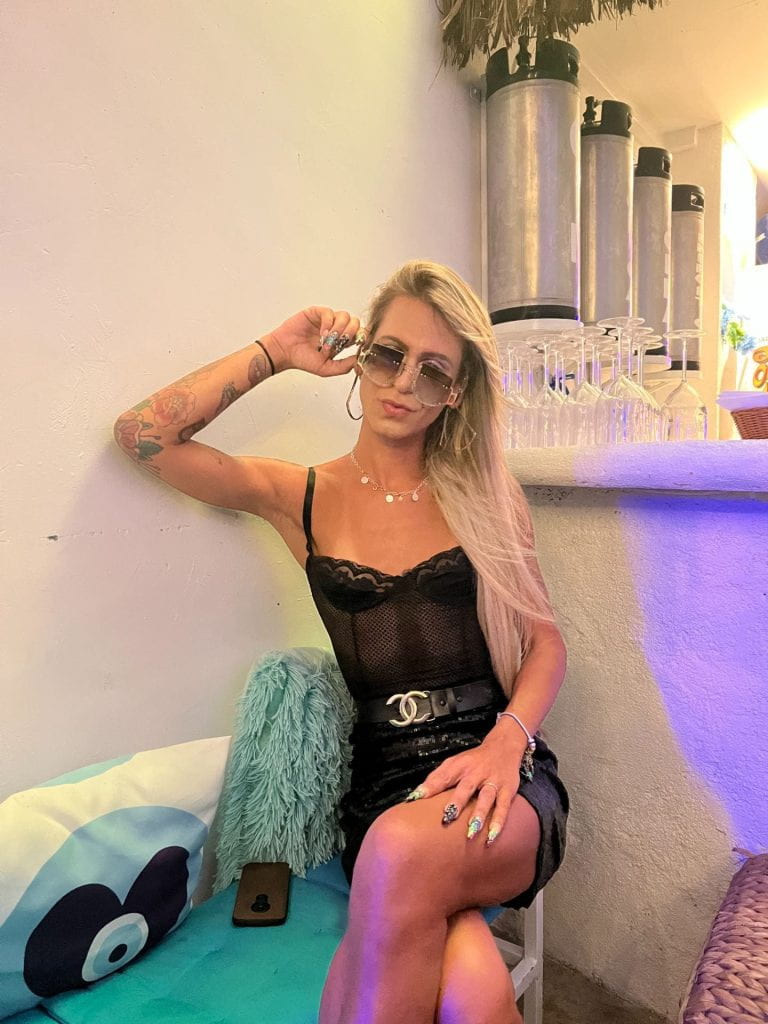
• Indie Lounge is a gay bar in Tegucigalpa, Honduras, that I visited on Feb. 9, 2022, while I was on assignment in the country. Vice President Kamala Harris and U.S. Agency for International Development Administrator Samantha Power had attended Honduran President Xiomara Castro’s inauguration a few weeks earlier. I was driving to an interview with Victor Grajeda, the first openly gay man elected to the Honduran Congress, in San Pedro Sula, two days earlier when I heard on the radio the U.S. Secretary of State Antony Blinken announced sanctions against former Honduran President Juan Orlando Hernández for corruption. (Honduran authorities on Feb. 15, 2022, arrested Hernández at his Tegucigalpa home after the United States requested his extradition on drug trafficking and weapons charges. Hernández’s brother, former Congressman Juan Antonio “Tony” Hernández, is serving a life sentence in the United States after a federal jury convicted him of trafficking tons of cocaine into the country.) On the night I visited, Indie Lounge staff invited patrons to submit messages that would then appear on television screens throughout the bar. One of the messages read, ‘happy divorce, Andrés.” My husband’s name is Andrés, and I began to laugh when I saw it.

• Las Tunas, Cuba, is a provincial capital about 400 miles southeast of Havana. The National Center for Sexual Education (CENESEX), a group directed by Mariela Castro, the daughter of former Cuban President Raúl Castro, organized a series of events in the city in May 2015 to commemorate the International Day Against Homophobia, Biphobia and Transphobia (IDAHOBiT), which honors the World Health Organization’s decision to declassify homosexuality as a mental disorder on May 17, 1990.
The bone-jarring drive from Havana to Las Tunas took more than 10 hours, and I finally arrived in the city shortly before 1 a.m. on May 16. The IDAHOBiT march that Mariela Castro led took place a few hours later. She and two activists later paid homage to Vicente García, a leading figure in the 10 Years’ War from 1868-1878 during which Cubans fought for independence from Spain, during a ceremony that took place in Las Tunas’ main square.
CENESEX also organized a party at a local nightclub on the city’s outskirts. It was around 2:30 a.m. on May 17 when a local bus driver introduced himself to me and asked if I wanted to go to the “after party.” I was exhausted, but I nevertheless accepted the invitation. I had never been to Cuba before, and I took him at his word when he told me that we would take a taxi to the restaurant where the party was taking place. We walked outside and climbed into a horse-drawn cart that brought us, his friends and a drag queen to the party. Our boisterous group made jokes and laughed at each other as the cart made its way through the city. The trip took less than 15 minutes, and the party continued once we arrived at the restaurant. Dawn was breaking when I returned to my hotel. I rested for a couple of hours and then began the long drive back to Havana. (I had reported from Cuba several more times when I arrived at Havana’s José Martí International Airport on May 8, 2019. Cuban customs officials told me that my name was “on a list” and they would not allow me into the country. I spent the next seven hours at the airport before an agent escorted me onto a flight back to Miami. The Cuban government has still not provided me with an official explanation of their decision not to allow me into the country. A contact suggested Mariela Castro, who is a member of the Cuban National Assembly, told the government not to allow me into the country because she did not want me to cover an LGBTQ+ rights march that independent activists organized in Havana three days later. The Cuban government has, to my knowledge, never publicly disclosed why it decided to prevent me from entering the country. I explained what happened to a press attaché at the Cuban Embassy in Washington me in July 2021 after he emailed me about meeting for coffee. He clearly did not know what his government had done to me. I did not hear back from him after I told him what happened.
• Mexicali is a Mexican border city that borders Calexico, Calif., in the Imperial Valley. I was on assignment in the area in July 2018.
The temperature was well over 100°F when I parked my rental car in a parking lot in Calexico at shortly after 8 p.m. on July 21, walked to the border crossing and entered Mexicali. I had a couple of tacos at a small, family-run restaurant and then walked to Taurinos Bar, a gay bar a few blocks south of the border. Patrons were playing pool and drinking beers while I asked the manager about then-U.S. President Donald Trump’s immigration policies and their impact on LGBTQ+ people. I finished the interview and then walked to Porky’s Divine, another gay bar three blocks south of the border. A California woman and members of her bachelorette party were among those who were inside when go go boys took the stage. A drag queen dressed as Frida Kahlo was among those who also performed. The temperate was still around 100°F when I left Porky’s Divine shortly after 1 a.m. on July 22. I stopped at a nearby convenience store to buy a bottle of water and a bag of potato chips before I walked back through the border crossing and into California. I was back at my hotel in El Centro, roughly 12 miles away, in less than half an hour.
Not everyone can access these spaces: They often have cover charges, and that cost, along with drinks and transportation to/from them, are prohibitive to someone who is not economically privileged. And this economic privilege often goes hand-in-hand with violence and discrimination based on factors that include sexual orientation, gender identity and race.
“Access to a car or a job that does not involve sex work could very well mean the difference between life and death for a trans Salvadoran woman or a gay man who is perceived to be too effeminate,” I wrote in the Blade on Feb. 7, 2017, after my first reporting trip to El Salvador. “Many of these people feel as though they have no other option than to leave the country and migrate to the U.S.”
Alexa, a transgender woman with whom I spoke for the Blade in La Ceiba, Honduras, on July 20, 2021, told me it is “very difficult to lead the lifestyle that we lead as trans women” in the country because of discrimination and a lack of employment opportunities because of her gender identity. Alexa spent nearly three years in prison after authorities charged her with attempted murder, even though she claimed she was defending herself against a woman who was hitting her in the face with a rock.
She told me a Salvadoran man raped her in prison. Alexa also said the warden forced her to cut her hair and guards doused her with cold water in an isolation cell after the attack.
“I was a woman,” said Alexa. “They made me a man.”
We were both crying during the interview. We embraced each other for several minutes when it was done.
These stories are incredibly difficult to hear, and they are indicative of the reality for many LGBTQ+ people in the region who struggle to survive on a daily basis. It is crucially important to share these stories. It is also equally as important to show our readers there are safe spaces in Latin America that offer LGBTQ+ people a safe place where they can be themselves. Bars and clubs such venues.
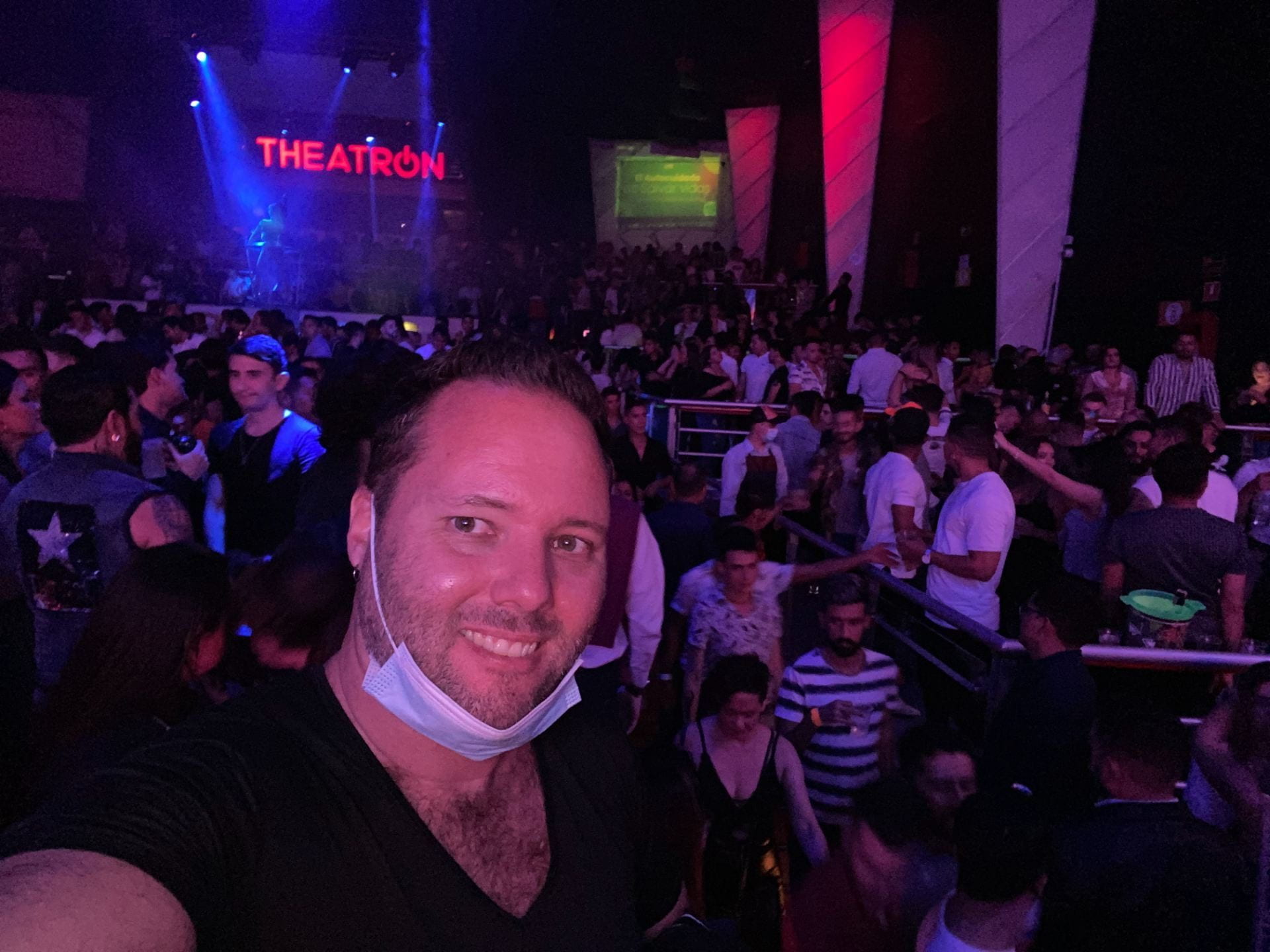
-

 State Department3 days ago
State Department3 days agoState Department releases annual human rights report
-

 Maryland5 days ago
Maryland5 days agoJoe Vogel campaign holds ‘Big Gay Canvass Kickoff’
-

 Politics4 days ago
Politics4 days agoSmithsonian staff concerned about future of LGBTQ programming amid GOP scrutiny
-

 District of Columbia1 day ago
District of Columbia1 day agoCatching up with the asexuals and aromantics of D.C.











